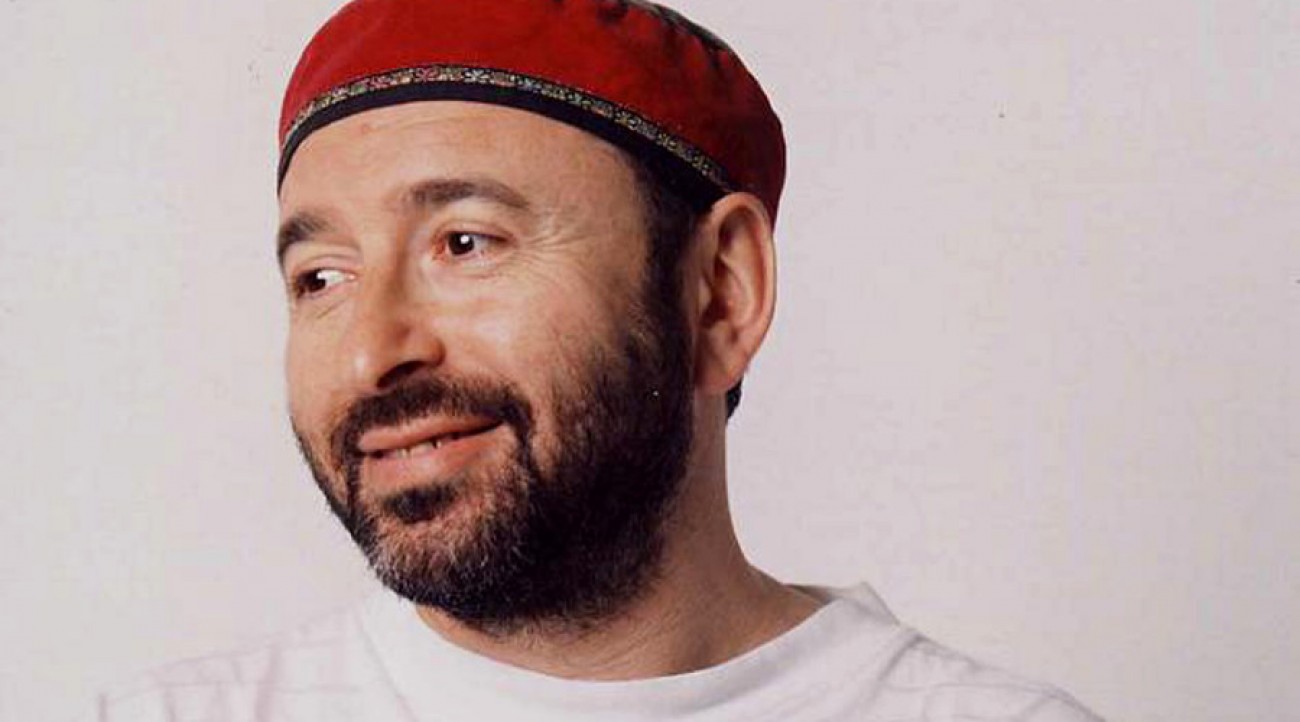MISHA ALPERIN SOLO

Misha Aleprin is on a constant musical journey. He draws from classical music, jazz, as well as traditional Eastern-European and Scandinavian music.
His compositions are difficult to label in terms of genre. As critics note, Alperin owes an equal debt to Béla Bartók and Alfred Schnittke, as well as to Keith Jarrett and Chick Corea. Alperin himself, however, although far from wanting to belittle the giants of American jazz, has special appreciation for its current European incarnations. The artist also goes back to his roots, drawing from the musical heritage of his family. He has, after all, debuted by playing at Jewish weddings, thus following in the footsteps of his grandfather, who was a cantor and author of music at a synagogue in Bessarabia. Even though Alperin describes Jewish music as too tragicomic, the experiences of his youth allowed him to develop improvisational skills that he aims to pass onto his students, by conducting lectures at the Norwegian Academy of Music. “We had to play a repertoire of thousands of songs and dances right off the bat, without any rehearsal. I had never heard most of the melodies. For a classically trained musician this is a huge challenge and often very stressful.”
Alperin encompasses the cultural and music heritage in two ways. On one hand he stresses that the awareness of one’s own roots serves as a guide, and it allowed him to develop an artistic identity after years of adventuring with classical music, rock, and jazz: “I was confused. I didn’t know what really belonged to me anymore.” Thanks to returning to music of native tradition, his compositions gained a strong foundation, a centre of gravity. “It made me more relaxed, I stopped being afraid.” However, Alperin doesn’t identify heritage with just the culture of his own country, and points out that an artist should always be open to the wealth of worldwide experiences. “All folk traditions belong to one family.” The changes that took place in Alperin’s character after he moved to Norway are what the artist considers important. He describes the country as one full of poetry and stark contrast – suspended between gentleness, tranquillity, and darkness, mystery. The years spent in Norway made Alperin more introverted and withdrawn. Nevertheless, he feels southern fire burning within him. “It’s a part of me that explodes when I’m in love, when I eat a splendid dish, and when I play.”
Alperin metaphorically divides his compositions into dances and songs. “Sometimes I sing inwardly, and sometimes aloud. I never stop singing, though. I agree with Arvo Pärt, who considered the human voice to be the only perfect instrument.” Moulding his entirely own existential experience with musical experience, Alperin regards music as an expression of the personal idea of beauty which evolves and changes along with his character. However, it always remains a kind of dream world for the artists, one that allows him to express melancholy and the joy of life. “Music has always been almost the sole outlet for channelling a wide spectrum of emotions: passion, sadness… everything.” The beautiful, minimalist, and intimate music of Misha Alperin combines the emotionality of melody with crisp articulation. It amazes and pulls the listener out from their everyday life, it becomes something that demands their full attention, something that has to be heard. This is a proposition for everyone, including the most picky of music-lovers.
The concert’s program will feature original pieces by Misha Alperin, included on his recent albums.
Misha Alperin | Jazz pianist, composer, and arranger from Ukraine. Leader of Moscow Art Trio. Currently lives in Norway, is a professor at the Norwegian Academy of Music, where he teaches piano, improvisation, and composition. Has recorded 6 albums for the prestigious record company ECM. Apart from original compositions Alperin performs jazz pieces and a repertoire inspired by classical music and traditional music of eastern and Scandinavian countries. Born in 1956 in Kamianets-Podilskyi in Ukraine and raised in Bessarabia (Moldavia), where he used to play with folk musicians, simultaneously studying composition and playing the piano. In 1980 he joined Moldavian Jazz Ensemble under saxophonist and violinist Semjon Shirman. In 1983 he moved to Moscow, where he experimented by combining elements of Russian and Romanian folk music of the Moldavian region with his own subjective rendition of traditional jazz. Alperin started heading in the direction of jazz relatively late, and his searches remained less influenced by contemporary pianist and more by such masters as Art Tatum, Bud Powell, and Lennie Tristano. He also drew from the Jewish musical heritage of his family. Misha Alperin’s grandfather was an author of music at a Bessarabian synagogue. The fate of the Soviet Jew became one of the themes on the album “Wave of Sorrow.” In Moscow he founded Moscow Art Trio and collaborated with the international group Huun-Huur-Tu. Since 1993 he has been living in Oslo, where he conducts lectures at the Norwegian Academy of Music. Selected discography: “Wave of Sorrow” (ECM 1990), “Prayer” (Boheme/Jaro 1991/1996), “Blue Fiords” (Boheme 1993), “Folk Dreams” (Jaro 1995), “North Story” (ECM 1997), “Mountain Tale” (Jaro 1998), “First Impression” (ECM 1999), “Portrait” (Jaro 2000), “At Home” (ECM 2001), “Night” (ECM 2002), “Instead of making children” (Jaro 2006), “Her first dance” (ECM 2008).
www.alperin.no
www.ecmrecords.com
sources: Misha Alperin “One can become music” – interview by Carina Prange for “Jazzdimensions” (Germany 2004) / Misha Alperin “Piano Man” – interview by Alexander Gelfand for “Forward” (USA 2008)











































FIND US